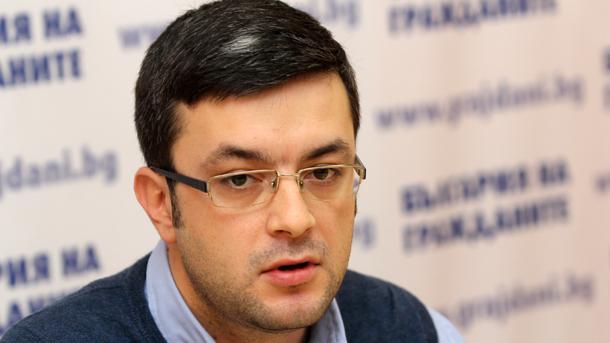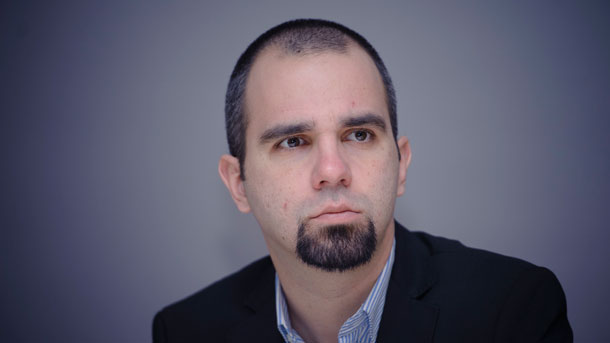
During the transition period Bulgarians have had only four occasions for optimism. These moments were at the beginning of the terms in office of Prime Minister Ivan Kostov (1997), Simeon Sakskoburggotski (2001) and Boyko Borisov (2009), as well as the membership of Bulgaria in the EU in 2007. This is what data by Gallup International show, as monthly polls have been conducted since the beginning of the 90s. The results were presented by the Executive Director of the agency Parvan Simeonov at a forum dedicated to the 25th anniversary of November 10, 1989. The discussion went under the motto "Generation of Change" and was organized by "Gallup International".
According to one of the participants - Toma Bikov from the Institute for Right Policy, what we call transition today, was actually a revolution. The communism - anti-communism axis was replaced by the axis of supporters of liberal consensus and the rest, he said in an interview for Radio Bulgaria.
 "Another issue is the assessment of this transition period,” Mr. Bikov says. “I think we should be moderate when we give such an assessment. It was not the most successful transition in Eastern Europe, but it was not a failure either. As usual, we are somewhere in the middle. As for the mistakes, I think that Bulgaria started the democratization process unprepared, including the anticommunist opposition. Opposition was supposed to be a leader, as it happened in Poland, the Czech Republic, and Hungary. In Bulgaria the democrats of the Union of Democratic forces feared to use the word capitalism in the first years of the transition. They tried to explain that transition would be smooth. Privatization happened late. There are two concepts of privatization. One is Polish, imposed by Balcerowicz, and there it happened fast and dirty. The other way is a slow and fair process. In Bulgaria, unfortunately, it happened the slow and dirty way. But I do not think it could have happened in a different way in Bulgaria. We lost a lot of time looking for the right way. The other problem is the failure of the liberal model. It was a liberal revolution. Trying to impose the liberal consensus of elites on a conservative society created a great hardship for Bulgarians. According to me, that is where part of people’s dissatisfaction came from."
"Another issue is the assessment of this transition period,” Mr. Bikov says. “I think we should be moderate when we give such an assessment. It was not the most successful transition in Eastern Europe, but it was not a failure either. As usual, we are somewhere in the middle. As for the mistakes, I think that Bulgaria started the democratization process unprepared, including the anticommunist opposition. Opposition was supposed to be a leader, as it happened in Poland, the Czech Republic, and Hungary. In Bulgaria the democrats of the Union of Democratic forces feared to use the word capitalism in the first years of the transition. They tried to explain that transition would be smooth. Privatization happened late. There are two concepts of privatization. One is Polish, imposed by Balcerowicz, and there it happened fast and dirty. The other way is a slow and fair process. In Bulgaria, unfortunately, it happened the slow and dirty way. But I do not think it could have happened in a different way in Bulgaria. We lost a lot of time looking for the right way. The other problem is the failure of the liberal model. It was a liberal revolution. Trying to impose the liberal consensus of elites on a conservative society created a great hardship for Bulgarians. According to me, that is where part of people’s dissatisfaction came from."
Political analyst Parvan Simeonov has his own reading of the mistakes of the transition period:  "Perhaps the biggest gap in this time of change was the lack of clear economic determination in the early years when viable economic units from the previous political-economic system could have been adapted to the new conditions. The delay of economic reforms resulted in the exhaustion of the Bulgarian economy years later. Another mistake, which could not be avoided, is the enormous naivety in society, which was accumulated in that time. To put it mildly it is not necessary that transition leads to something good for oneself. Many forgot that much stronger social stratification would be created in Bulgarian society and this is absolutely normal. Many people today blame some hidden forces for what happened and they think that transition is flawed. Yes, the transition could have been better if expectations had not been so naive and if we focused more on economy. I can see this today from the distance of time. We see the transition period as some exceptional time, while it is just a phase in the modernization process of Bulgarian society," said in an interview for Radio Bulgaria Parvan Simeonov.
"Perhaps the biggest gap in this time of change was the lack of clear economic determination in the early years when viable economic units from the previous political-economic system could have been adapted to the new conditions. The delay of economic reforms resulted in the exhaustion of the Bulgarian economy years later. Another mistake, which could not be avoided, is the enormous naivety in society, which was accumulated in that time. To put it mildly it is not necessary that transition leads to something good for oneself. Many forgot that much stronger social stratification would be created in Bulgarian society and this is absolutely normal. Many people today blame some hidden forces for what happened and they think that transition is flawed. Yes, the transition could have been better if expectations had not been so naive and if we focused more on economy. I can see this today from the distance of time. We see the transition period as some exceptional time, while it is just a phase in the modernization process of Bulgarian society," said in an interview for Radio Bulgaria Parvan Simeonov.
English: Alexander Markov
The election day in Brussels is unfolding amid an unusually sunny weather, reports Sibila Stoyanova, secretary of one of the two polling stations at the Bulgarian Embassy in the Belgian capital. There are a total of 16 polling stations in Belgium. It is..
The European Parliament is the only body in the EU directly elected by its citizens. 6 138 050 Bulgarian voters have the right to elect 17 political representatives of Bulgaria in the new European Parliament for the next five years. Today's elections..
Elections in Australia are proceeding normally, without any reported violations. However, voter turnout is lower as compared to the previous elections for MPs and Presidential elections. Bulgarians In New Zealand can vote only in the largest city,..

+359 2 9336 661
